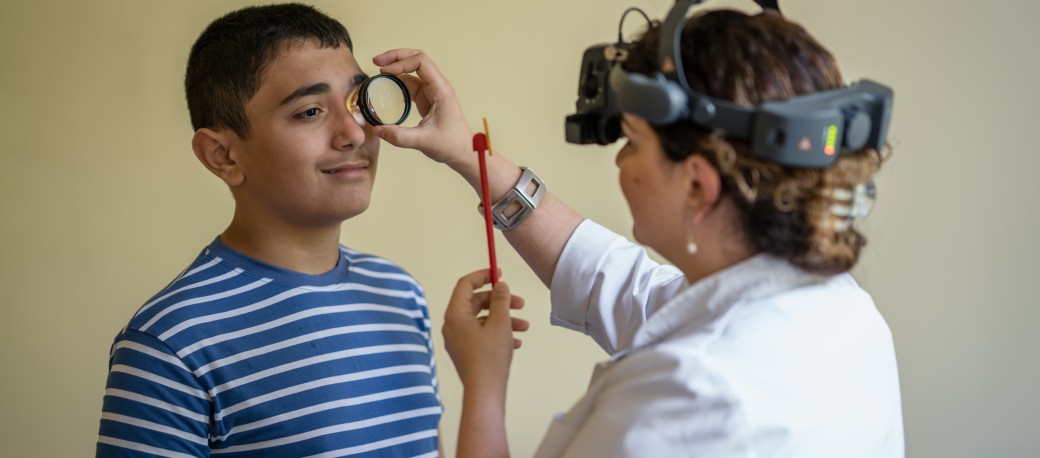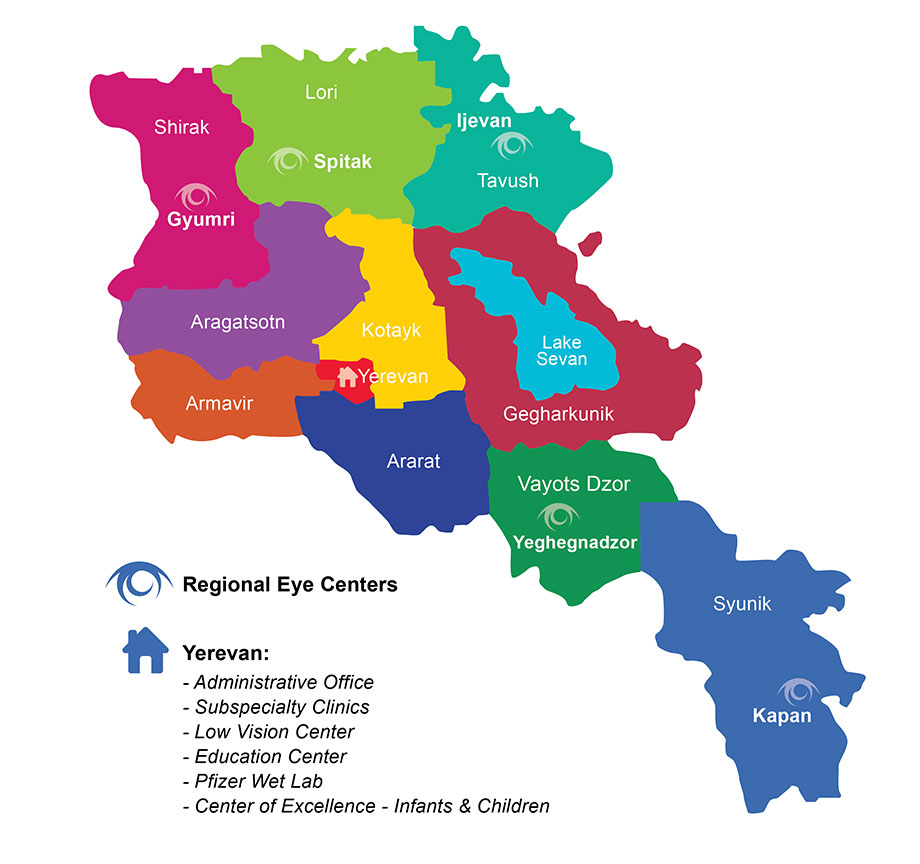The recent Artsakh War has had many disastrous repercussions for Armenia. One of them is the rise of visually impaired people in the country, both soldiers and civilians. Since November 2020, our Low Vision Center has seen a dramatic increase in the number of patients with ocular damage from explosions and other injuries sustained during the war. Caused by heavy munition blasts, the ocular trauma is complex and disastrous, often leaving patients with little to no vision at all. Those considered lucky to have avoided blindness need access to regular low vision services to maintain what remains of their sight.
Our Low Vision Center, which was established in 2006 and located at the Kanaker-Zeytun Medical Center in Yerevan, has recently ramped up its services by obtaining additional equipment, including specialized optical and non-optical devices, to continue helping an increasing number of patients. Additionally, in partnership with a group of Boston-based low vision professors, we will also be conducting a series of online training sessions for low vision specialists and occupational therapists to help them master new techniques in the field of low vision. These services and tools, such as vocational and life skills training, ensure that patients suffering from low vision continue to live productive lives despite their loss of sight.
Directed by Dr. Ani Gevorgyan, the Low Vision Center has been treating individuals who experience loss of sight that is not possible to fully correct or restore with eyeglasses, contact lenses, medicine or surgery. The only clinic of its kind in the Caucasus, the center works with patients who suffer from impaired sight, teaching them vocational and life skills like specialized computer skills for the visually impaired.
Low vision can hamper daily activities like reading and driving and is generally associated with aging, but it can also result from birth defects, inherited diseases, injuries, diabetes, glaucoma and cataract. Low vision is not the same as blindness, as there is still some vision in the eye that can be improved with the use of special devices and lifestyle aids.
Our Low Vision Center currently treats over 7,000 patients a year and we expect that number to increase over the next few years, as wounded soldiers with eye trauma need low vision services, prosthetic eye replacements and search for new possibilities to partially restore their sight.
“The Low Vision Center receives many patients who have been operated on in other clinics across Armenia and require follow-up low vision treatment and services,” said Dr. Gevorgyan. “Because of the robust low vision model AECP has developed in Armenia, we are also able to serve patients from neighboring countries in the region, helping all of our patients preserve the maximum possible vision depending on the complexity of each case.”
In addition to the ongoing treatment and services at the AECP’s Low Vision Center, patients have access to computer training programs for adults and children. For people with visual impairments, the possibility of using a computer is a big step forward in obtaining access to information, learning new skills and gaining computer literacy. The center offers these programs to teach visually impaired people skills that would ensure the highest possible level of independence in performing daily tasks like reading and using a computer. This specialized treatment opens a new world for the visually impaired, providing patients with a new hope to continue living a full and independent life.
The Low Vision Center is currently in need of additional equipment to prepare for a new influx of patients as more soldiers and civilians undergo post-war treatment and rehabilitation. This includes optical and non-optical devices such as telescopic glasses, magnifiers, writing guides, canes as well as mobility and computer training related needs to ensure patient’s independence such as various voice programs, smart phones and computers. If you’d like more information on what equipment is needed for our Low Vision Center, please contact us and we can provide a full list. With your support we can enhance this much-needed Center with the resources needed for the visually impaired in Armenia to thrive.







